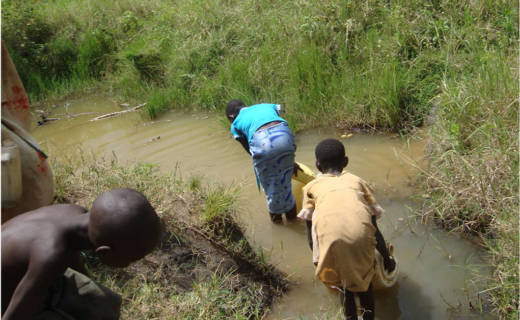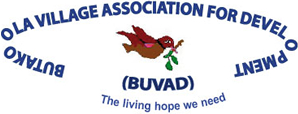Water, Sanitation & Hygiene

Program Objectives
- To promote regular handwashing with soap in Kayunga District in a move to safeguard communities from the spread of the COVID-19 pandemic.
- To safeguard rural disadvantaged communities against preventable water spread diseases like; typhoid, dysentery, Cholera, Diarrhea, Bilharzias.
- To improve water and toilet coverage levels within Kayunga District of Uganda.
- To improve the water sanitation and hygiene levels within the remote rural communities of Kayunga District Uganda.
- To increase awareness on the Ministry of Water Sanitation and Environment Standard Operating Procedures at water points, primary health care, sanitation, and hygiene at household level in Kayunga.
- To ensure continuous functionality, sustainable management, and care for the constructed safe water sources.
More Information
While worldwide, water has become more paramount than before in the prevention against the Spread of COVID-19 through regular hands washing, it’s known that a child dies every 20 to 40 seconds due to unsafe water. In Kayunga nearly 20 children are admitted to the District Hospital per week suffering from water, sanitation and hygiene-related diseases like; typhoid, bilharzia or dysentery with at least 10 out of each of these ending up dying per month as they are brought when they are in acute situations already most times. The level of WASH awareness is too low in most rural areas. In an interview during the baseline survey BUVAD conducted recently, most respondents in the case study areas mistook all these diseases to be generally Malaria or fever.
Despite the global fight against re-known pestilences like; Ebola, HIV/AIDs, there are some other dangerous diseases that have been neglected in view of them. A case in point is the recent typhoid outbreak in 15 Districts of Uganda Kayunga inclusive claiming numbers of children’s lives.
BUVAD came up with an innovation to improve safe water supply in primary schools and homes alongside environmental conservation. In this project, BUVAD re-uses waste plastic bottles as free of cost bricks to build rainwater harvesting tanks of 10,000 liters capacity for children in primary schools and we have disseminated this technology free of charge to communities during such workshops, given funding support from partners like you.
Since 2016, we have so far constructed 12 rainwater harvesting tanks of 10,000 liters capacity for 12 primary schools despite the general outcry for this service in more than 60 primary schools of Kayunga District. The project’s impact on the water, hygiene, and sanitation levels within the 10 beneficiary schools are great and the District Education Office together with the District Water Office has implored us to scale up our services. The challenge still remains with the funding limitation!
Our intention is to get the communities and schools in Kayunga region, better prepared to ably promote regular hand washing to prevent the spread of COVID-19. Our water sources in schools are expected to serve 600 (above) pupils at school, with cheaply available clean safe water from easily accessible rain harvested water in the BUVAD waste plastic bottle brick tanks or borehole water sources.
I humbly invite you to watch our video documentaries about;
- the quest for water in Kayunga during the COVID -19 era
- a documentary about reusing waste plastic bottles to build rainwater harvesting tanks for primary school children, and
- an international CCTV news broadcast/report about our innovation of empowering communities to re-use waste plastic bottles as free of charge bricks to build cheap, affordable, and very durable rain-water harvesting tanks and toilets.
Kindly Click on the video links Project Videos/Documentaries in the proceeding sections.
Water being a health challenge in Kayunga
Plastic bottles to rainwater harvesting tanks
Our challenge is raising funding to promote the construction of more rainwater harvesting tanks of 10,000 liters capacity this year at community primary (infant).
BUVAD also needs funding for more borehole water wells to be set up at community donated sites for use by communities and at more community primary school sites for use by the primary schools.
As a quick strategy to address the emergent pressure on water points, BUVAD also intends to increase the number of functional boreholes and water points within communities of Kayunga through helping to make major repairs on already broken down facilities whose expenses cannot be raised by water user management committees.
BUVAD also intends to construct standard toilets at more community primary schools, community households, and community centers as a strategy to kick Open Defecation out of Kayunga region. Upon this background, we request your consideration to fund the furthering of these initiatives using the donate buttons on this website to promote health at these seeking communities, households, and community primary schools and in urgent need. They have already applied for BUVAD’s intervention.
CCTV Broadcast – information and clarity on the need
